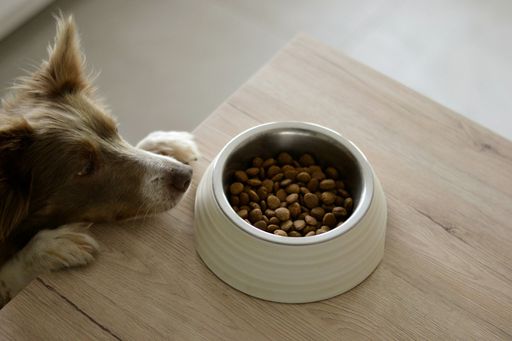Barbecues are a central part of American family life, with 7 out of 10 adults in the US owning a grill or roaster. Far from being a summer fad, garden barbecues are popular throughout the year, with research showing that some 75% of barbecue owners grill in the winter, too! If you have a dog, then you may wonder how to ensure they have a great time at your next barbecue party, and you may wonder if they can enjoy a few treats. The good news is that there are a myriad of barbecued foods you can share with them, while making sure to avoid those that aren’t suitable. Read on to discover how to make your next barbecue party as delicious for your pooch as it is for you!
Is Barbecued Food Healthy for Dogs?
Barbecuing and grilling are both relatively healthy means of cooking, since they require next to no fat yet maintain meat’s juicy goodness, adding a bonus smoky flavor to your favorite ingredients. In the past, there were concerns about certain compounds (PAHs and HCAs) that form on meat when it is barbecued. However, according to the National Cancer Institute, studies on these compounds have been mixed, and no link between exposure to them and cancer has been established. This is because the amount of chemicals that can appear on barbecued food is 1,000 times less than the amounts used in lab studies. To lower your and your dog’s exposure to PAHs and HCAs, simply choose leaner cuts of meat, raise your grill gates farther above the flames, and continually rotate your meat to limit heat exposure. Two studies (one in 2019 and another in 2020) found that marinating meat in beer and other marinades can significantly reduce the production of PAHs and HCAs. Interestingly, marinating meat is considered one of the most important barbecue safety measures, in addition to preheating the grill and avoiding the use of accelerants (since the latter can lead to serious burns).
Ideal Meat Products for Fido
As mentioned, when it comes to meat, lean is the way to go. Because barbecued meat develops a nice golden-brown/slightly blackish hue once it’s grilled, you may find it hard to spot tiny bones that could pose a choking risk for your dog. The same goes for fish, which can house tiny bones. Make your life easier by opting for boneless, skinless meat, and boneless fish pieces. Good meat options include beef, pork, and chicken. As for fish, consider adding a bit of Omega-3 essential fatty acid goodness to your dog’s meal by opting for varieties such as salmon, tuna, and trout. If you are running out of these ingredients but you don’t want Fido to miss out, a grilled egg will undoubtedly hit the spot!
Grilled Vegetables and Fruits
You can also pop a host of vegetables and fruits on your grill. Top vegetable choices include carrots, sweet potatoes, and zucchini. If your dog has a sweet tooth, then bananas, apples, watermelon, blueberries, pineapple, mangos, peaches, strawberries, and cantaloupe will undoubtedly appeal. When making your choices, make sure to check out the American Kennel Club’s list of fruits and vegetables that can be harmful to dogs. Foods to straight-out avoid include cherries (since the pit contains cyanide), grapes (which are so toxic to dogs that they can cause kidney failure), and tomatoes (the green parts of this plant contain a toxic compound called solanine). Asparagus, wild mushrooms, garlic, onions, shallots, and chives can also cause digestive upset.
Be Wary of Overfeeding
When you have a barbecue, ask your guests not to feed your pooch. Food can contain salt and fat, and while one or two small snacks won’t do any harm, the cumulative effect of being fed a myriad of treats can cause tummy upset. Aim to feed your dog before or after your meal, so that your dog doesn’t beg for scraps. Avoid giving them chips, dips, and other items, feeding them controlled portions of foods you have specifically selected for them.
Hosting a barbecue that includes your furry friend can be a delightful and rewarding experience. By selecting the right foods and adhering to key precautions, you can ensure your dog's safety and enjoyment during the festivities. Remember to prioritize lean, boneless meats and fish, and consider adding a variety of grilled vegetables and fruits to their plate. Keep an eye out for potentially harmful foods, and avoid overfeeding them. With a little forward planning, your next barbecue can become a memorable occasion for both you and your beloved canine companion. So fire up the grill, savor the flavors, and make cherished memories with your four-legged friend by your side.


















